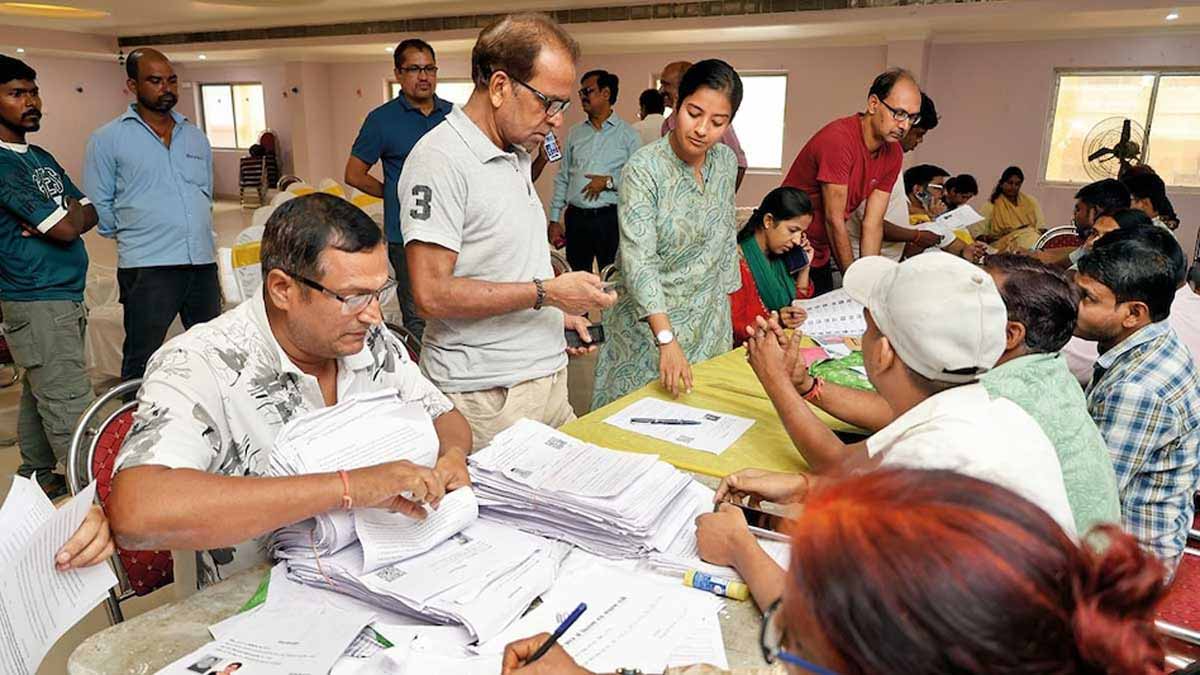SIR 2.0: Voters’ list clean-up drive begins in Tamil Nadu, West Bengal and Kerala amid political outrage

The second phase of the Special Intensive Revision (SIR), a voters’ list clean-up drive launched by the Election Commission, will begin in nine states and three Union territories on Tuesday.
This phase will cover nearly 51 crore voters across Tamil Nadu, Kerala, West Bengal, Uttar Pradesh, Madhya Pradesh, Rajasthan, Chhattisgarh, Goa, Gujarat, Puducherry, Andaman and Nicobar Islands, and Lakshadweep.
Notably, Tamil Nadu, Kerala, West Bengal and Puducherry are among the states that go to assembly polls in 2026.
The enumeration process in the second phase will continue till December 4, and the draft electoral rolls will be released on December 9. Citizens can file claims and objections from December 9 to January 8, 2026.
All hearings and verifications will be completed by January 31, and the final electoral rolls will be published on February 7.
The ongoing SIR is the ninth such exercise since independence, with the last one conducted in 2002-04. The EC will use the last SIR as the cut-off date.
The SIR 2.0 begins just two days before the first phase of the assembly elections in Bihar, where a similar exercise was carried out recently. Over 68 lakh names were deleted from the list in Bihar, which sparked massive criticism from the opposition parties.
Among the states that were included in the second phase, West Bengal and Tamil Nadu are strongly opposing the move, questioning its timing and intent.
The ruling parties in these states—the Trinamool Congress and the DMK—have been alleging that the Election Commission (EC) is acting under pressure from the saffron party to manipulate the voter list ahead of the state elections next year.
The BJP has, however, welcomed the SIR, terming it a step towards ensuring greater transparency in the electoral rolls.
In West Bengal, Chief Minister Mamata Banerjee will lead a rally in Kolkata on Tuesday to protest what her party calls a "politically motivated revision" aimed at disenfranchising minorities and marginalised groups.
The party has reportedly activated its battle-hardened booth network, determined to ensure that no "genuine voter" is struck off the rolls.
Tamil Nadu’s ruling DMK has filed a petition in the Supreme Court challenging the SIR. The court is expected to hear the plea on November 6 or 7.
The petition argues that the SIR lacks any statutory basis and therefore goes beyond the scope of the Registration of Electors Rules, 1960.
India